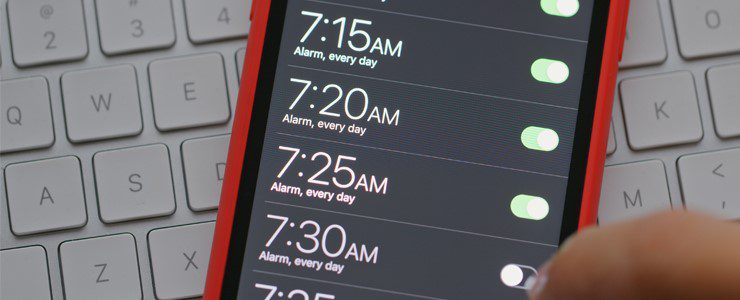
A bad night’s sleep? How to maintain workplace efficiency
Everyone knows we need a good night’s sleep to work at maximum efficiency. Feeling tired at work leaves us feeling sluggish, unproductive and sometimes short-tempered. So, how can you cope if you haven’t slept well?
There are various reasons why someone might have suffered a lack of sleep. It can be through no fault of their own. For example, maybe they have a newborn baby, noisy neighbours, or perhaps they have a lot of stress in their life causing insomnia.
Maintaining workplace efficiency after a bad night’s sleep can be challenging, but not impossible. When faced with a lack of sleep, an employee must overcome numerous difficulties.
Workplace problems
The short term consequences associated with sleep deprivation include a noticeable reduction in performance and alertness at work. Scientists say being awake for even 90 minutes during the night can result in a 32% reduction in daytime alertness.
Feeling less alert can turn into excessive daytime sleepiness, with possible difficulties in staying awake at your desk or in meetings. This can impair your ability to process information and think clearly, while impacting on your memory.
It can become difficult to participate in some activities that require sustained attention such as writing a report, speaking at a meeting, or dealing with a phone call to a client. People who haven’t had enough sleep are also twice as likely to sustain an occupational injury.
Even the journey to work can be more challenging – drowsy drivers are more likely to be involved in an accident while commuting, either from having slower thought processes and reactions, or from actually falling asleep at the wheel.
Combating workplace tiredness
In an ideal world, everyone would have a peaceful slumber for health reasons and efficiency at work, but sadly, that just isn’t always possible. If you’ve had a bad night, the solution is to modify your conduct in the workplace to compensate for a lack of sleep.
A lot of people reach for the coffee, but this only provides a temporary boost. It’s better to modify your day, when possible, to mitigate the risks of working while tired. If you work in a corporate office, this can be more challenging, unless it’s a very large office, where you can “hide” behind your desk.
If you work in a more flexible workspace, where you can go at your own pace, try to focus on routine tasks that won’t need all your creative skills: It’s hard to muster much creativity after little sleep because sleep deprivation makes us prone to making mistakes.
In addition, see if you can rely on other colleagues. If there’s anything you can delegate, this is a good time to do so. If you can’t delegate, try to proof-read your work the following morning before sending it to its destination. If it’s more urgent, see if a colleague will read through it for you.
If you’re a person who benefits from taking a power nap, try to fit one into your lunch break. However, if this makes you feel worse, award yourself an early finish and try to have an early night, so you can return to work feeling refreshed the following day.
Remember that sleep-deprived employees can be bad-tempered and less tolerant of co-workers’ presence and opinions. It can make people more prone to outbursts and other inappropriate behaviour. This can impact the whole organisation, contributing to inefficiency and dissatisfaction.
Often cited as a reason for employee absence; unless you take measures to combat insufficient sleep, it can turn into a vicious circle, as sleep deprivation increases stress, which in turn causes insomnia. To help you unwind, try to get into a relaxing bedtime routine, such as having a bath, or a warm drink, to unwind.
© fizkes / Shutterstock.com



